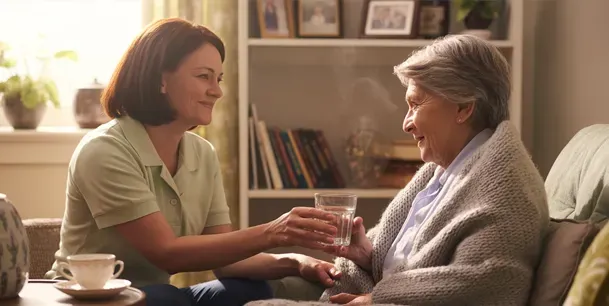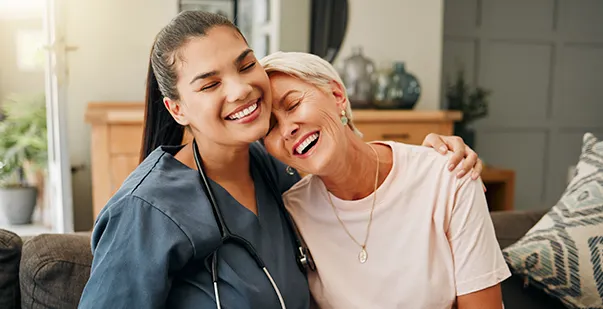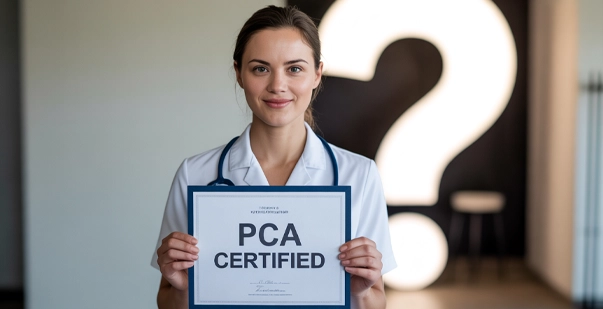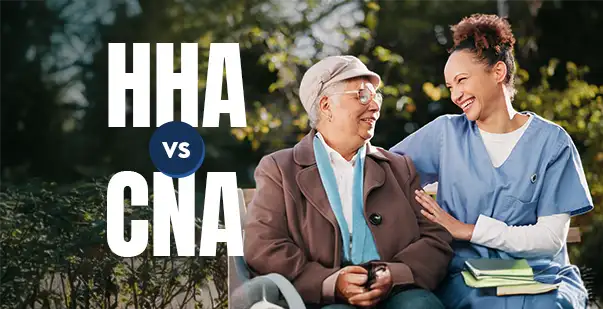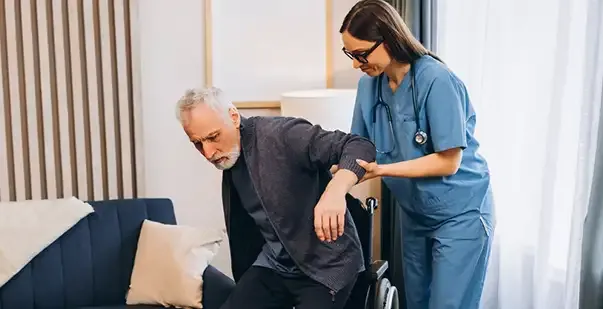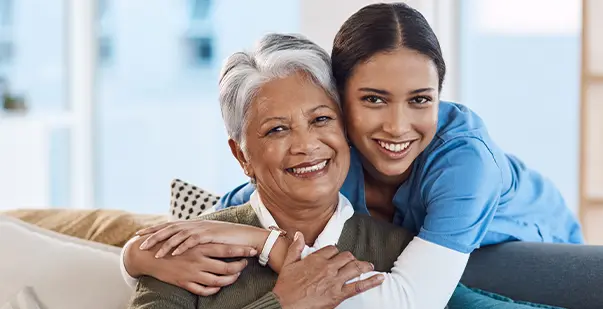When you begin working in an assisted living home, the first few days are full of learning, names, routines, and the little things that make residents feel comfortable. Your natural caregiving instincts help, but experience quickly shows that caring for seniors often calls for more than kindness alone. According to the National Alliance for Caregiving, an estimated 65.7 million Americans, about 29% of the adult population, have served as family caregivers for an ill or disabled relative in the past year. Sooner or later, you may wonder: Am I really prepared with the senior caregiver skills needed for everything seniors might face?
That’s the challenge with caregiving. Compassion is the starting point, but the role asks for preparedness and expertise. Read on to learn the top senior caregiver skills you should learn, so your care goes beyond good intentions and truly makes a positive impact.
Read More: What is Caregiver Certification and Why is it Important?
What Skills Every Senior Caregiver Needs?
Caring for older adults demands experience in dealing with frail individuals. You are also required to have a mix of people skills and medical know-how. Here are the senior caregiver skills you should focus on if you want to give safe and reliable care:
Communication
You need to speak clearly, ask the right questions, and pass on accurate details to doctors or family members. Poor communication can lead to missed medications, delayed treatment, or overlooked symptoms. When you explain things well, seniors feel respected and involved, which builds trust and cooperation.
Empathy
Empathy matters. Many older adults feel frustrated or sad as they lose independence. With empathy, you will learn to listen without judgment. When you respond with understanding, you help them feel safe. This makes it easier to guide them through care routines or medical situations without conflict.
Patience
Daily tasks, such as walking, repeating instructions, or managing personal care, often take more time for seniors. Patience keeps you from rushing, which helps avoid the risk of falls, injuries, or emotional distress. This skill is especially important when working with residents who have Parkinson’s disease, arthritis, or memory impairment. A calm approach also preserves their dignity and makes them more comfortable.
Observation
Good caregivers notice small changes before they become big problems. A new bruise, less appetite, or sudden confusion might point to infections, medication reactions, dehydration, or worsening heart failure. When you stay alert, you can act early and prevent a minor issue from becoming an emergency.
First Aid & CPR Readiness
You should know how to stop bleeding, treat burns, and manage sprains or fractures. CPR is just as important, as every minute without CPR after cardiac arrest can lower survival rates by up to 10%, according to the Post Graduate Medical Journal. Your quick response could save a life.
ACLS & Emergency Response Knowledge
If you care for someone with heart problems, learning ACLS basics can help. You’ll understand what arrhythmias look like, how cardiac arrest is handled, and how to work with emergency teams. Even if you don’t perform advanced care yourself, this knowledge helps you respond faster and explain situations clearly.
Medication Management
Polypharmacy (taking multiple medications) is common in seniors, which raises the risk of drug interactions, duplicate therapies, and adverse side effects. Therefore, one of the essential skills for senior caregivers is to be able to keep track of doses, watch for side effects, and know when to call a doctor. Managing medications well helps avoid hospital visits from skipped doses or drug mix-ups.
Mobility & Transfer Techniques
Falls are a major risk for seniors. You should know how to help them stand, walk, or move from bed to chair safely with the help of gait belts, walkers, or slide boards when appropriate. Using the right methods keeps them steady and also protects you from injuries while lifting or supporting them. You should also know how to assist someone after a fall, including checking for pain, supporting their head and neck, and not lifting them until serious injuries are ruled out.
Infection Control & Hygiene Safety
Seniors have weaker immune systems, which means even a small infection can quickly become serious. Knowing the basics of infection control makes a big difference. Wash your hands often, keep high-touch areas clean, and use gloves or masks when needed. This matters most if you’re helping someone with open wounds, a chronic illness, or a condition that affects their immunity.
Dementia & Alzheimer’s Care Skills
Caring for someone with memory loss isn’t just about meeting their physical needs. It is about keeping life predictable and safe. Stick to routines, use gentle redirection instead of confrontation, and create a safe space for those who might wander or get confused. Small changes in how you communicate can make their day calmer and yours easier.
Emotional & Social Support
Loneliness hits harder than most people think. It can lead to depression and even affect memory. That’s why spending time talking, playing games, or helping seniors stay connected with others is just as important as giving medicine or meals. A little conversation can go a long way in keeping spirits up.
End-of-Life Comfort & Palliative Care Awareness
Sometimes, caregiving means walking with someone through their final stage of life. That’s when comfort matters most. It is important for easing pain, helping them stay at peace, and supporting their family. You should also get the list of their wishes, like advance directives or DNR orders. This will help you respond in a way that respects their dignity to the end.
Read More: The Growing Need for Assisted Living Facilities for Veterans
Why Senior Caregivers Need Problem-Solving & Decision Making?
In senior caregiving, surprises happen every day. You might be helping with breakfast one moment and facing a medical emergency the next. This is when how you respond in those first few seconds matters. Here’s where senior caregiver skills such as quick, confident decision-making really count:
Read More: Caretaker Vs Caregiver - Know the Differences
Sudden Falls
Falls can happen in an instant. If a senior slips and falls, you need to decide right away. Do you keep them still or try to move them? If there might be a fracture or head injury, staying put is usually safer. Look for pain, swelling, bleeding, or signs of a concussion. Then decide if it’s time to call emergency services. Your fast judgment helps avoid more harm and speeds up care.
Choking Episodes
Choking is a real risk during meals, especially for seniors who struggle with swallowing. You have to spot the difference between mild choking (when they can cough) and a full blockage (when they can’t breathe or speak). If it’s severe, you act; abdominal thrusts or back blows can keep them alive until help arrives.
Sudden Illness or Chest Pain
If a senior suddenly grabs their chest or gasps for breath, every second matters. Check their symptoms fast. See if they have medications like nitroglycerin close by. If they lose consciousness, start CPR immediately. If you know ACLS, you can share important details with paramedics, heart rhythm concerns, medications taken, or when symptoms began. Those details save valuable minutes.
Dietary or Hydration Issues
Not all problems are dramatic, but they can still become emergencies. If you notice a senior isn’t eating or drinking enough, dehydration can set in fast. That can lead to confusion or even hospitalization. Acting quickly might mean offering softer meals, adding flavor to water, or calling their doctor before things get worse.
Medication Mistakes
Accidents happen with medications. If a senior takes the wrong pill or doubles up on a dose, you need to respond right away. Check the label. Call poison control or their doctor. Watch for signs like dizziness or an irregular heartbeat. Staying calm and following a clear plan keeps the situation from spiraling and helps them get safe care.
Read More: Top Benefits of Caregiver Certification for your Career
Personal Care & Hygiene: Supporting Daily Independence
Personal care skills for caregivers don’t just involve staying clean. It’s about helping them keep their dignity, comfort, and sense of self. When you handle these tasks with care and respect, you prevent infections or skin problems and help seniors feel valued and capable. Here’s the list of tasks where you can apply your senior caregiver skills:
Bathing Assistance
Regular bathing helps prevent skin infections, rashes, and body odor. But for many seniors, it can feel uncomfortable or vulnerable. You can make it easier by keeping their privacy in mind, taking help from a family caregiver, warming the room, and using non-slip mats or shower chairs to prevent falls. Walk them through what you’re about to do before starting. It helps them stay calm and feel in control instead of embarrassed or anxious.
Grooming Support
Small grooming tasks, like brushing hair, trimming nails, or shaving, can have a big impact on how seniors see themselves. Skipping these steps can lead to discomfort or issues like ingrown nails and skin infections. Approach grooming gently and respect their preferences for style and routine. If possible, encourage them to take part, even if it’s only a small step; it keeps them involved and confident.
Dressing with Care
The right clothing matters for both sd cafety anomfort. Choose items that are easy to wear and suit the weather. Adaptive pieces, like those with Velcro closures or wider openings, are especially helpful for seniors with arthritis or limited movement. Let them do as much as they can on their own, even if it takes extra time. Every step they take supports their motor skills and sense of independence.
Why It MattersPersonal care goes beyond hygiene. It shapes how seniors feel about themselves. When they feel clean and presentable, they’re more likely to engage with others and less likely to feel withdrawn. |
Read More: Who Are Home Caregivers? All You Need To Know
Take Care of Yourself to Better Care for Others!
Caregiving takes a toll on your body and mind. If you don’t take care of yourself, exhaustion can quietly build up until it turns into burnout. That doesn’t just affect your health. It impacts how much patience, focus, and safety you can offer the person you’re caring for. Thus, you should make time for rest, healthy routines, and emotional breaks. It is part of providing quality care. Pair that with the right senior caregiver skills, such as senior-specific first aid, CPR, or ACLS training, and you’ll feel more confident handling emergencies while protecting your own well-being.
If you want to feel more prepared and protect your well-being at the same time, enroll in a caregiver training program for assisted living from a trusted provider.
References:
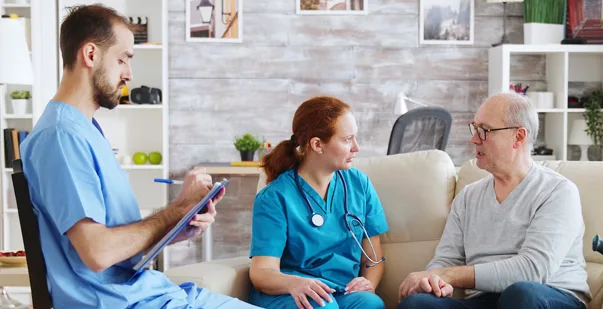
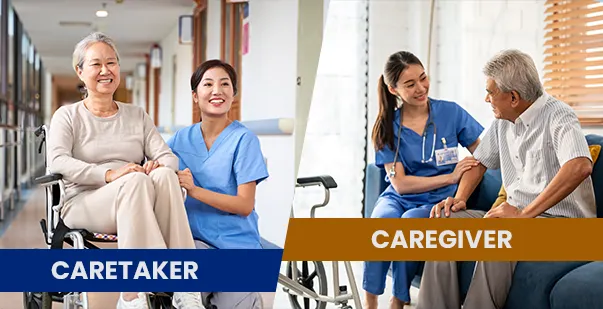
.webp)
